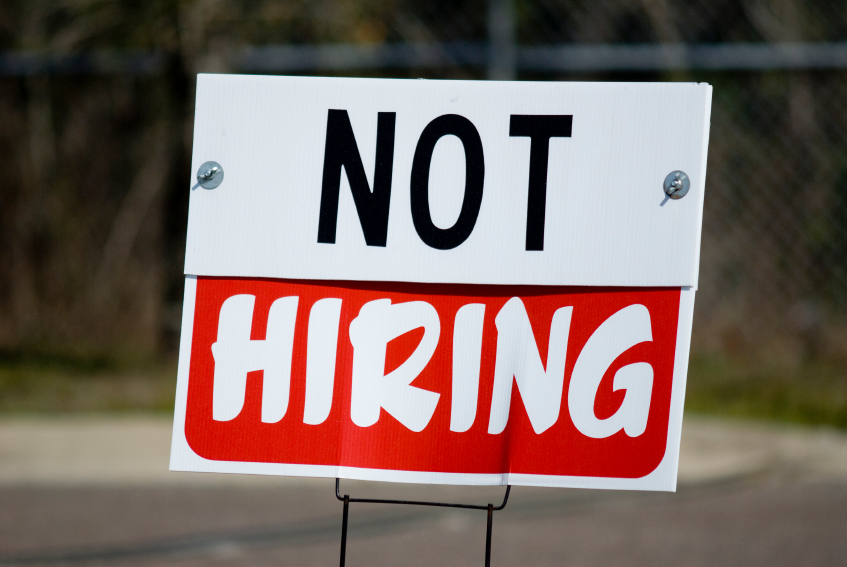(BigGovernment.news) Defenders of the Affordable Care Act have resolutely denied that the law has hurt employment, but that’s primarily because they are choosing to ignore evidence that suggest otherwise.
A recent New York Times piece actually highlighted what a job killer Obamacare continues to be, even if that wasn’t the primary focus of the article considering the Times’ editorial board has consistently supported the law:
When LaRonda Hunter opened a Fantastic Sams hair salon 10 years ago in Saginaw, Tex., a suburb of Fort Worth, she envisioned it as the first of what would eventually be a small regional collection of salons. As her sales grew, so did her business, which now encompasses four locations — but her plans for a fifth salon are frozen, perhaps permanently.
Starting in January, the Affordable Care Act requires businesses with 50 or more full-time-equivalent employees to offer workers health insurance or face penalties that can exceed $2,000 per employee. Ms. Hunter, who has 45 employees, is determined not to cross that threshold. Paying for health insurance would wipe out her company’s profit and the five-figure salary she pays herself from it, she said.
At present Hunter does not provide health insurance benefits for her employees because, she told the Times, “the margins are not big enough in our industry to support it.”
As noted by the National Center for Policy Analysis, profits in Hunter’s industry ranged between 5-8 percent of revenue over the past decade, something she did not mention in the Times article. She also didn’t say anything about health insurance being a form of non-cash compensation. It’s unlikely her low-wage employees could substitute health benefits for lower take home pay, even with Obamacare’s employer tax exclusion. Worse still, the health benefits those workers could even afford would likely come with deductibles so high that the plans would have little direct benefit.
The Obamacare mandate for requiring businesses with 50 or more employees to provide them with health insurance takes effect Jan. 1, 2016, after years of unconstitutional delay by the president. Companies with 50 or more workers that fail to provide them with “affordable” health insurance will be subject to fines of $2,000 per employee, with the first 30 exempt (and who writes a rule like that anyway?).
“According to the Kaiser Family Foundation’s Employer Benefits Survey, the cheapest coverage businesses offered single employees in 2015 was high-deductible plans costing about $5,567, on average,” NCPA noted. “However, there is a limit to how much of that cost employers could hope can to pass on to workers.”
Hunter’s case is but one example of the negative effect the ACA has had on employment – in the franchisee industry, especially, but overall as well. And though there have been about 11 million jobs created since the ACA was passed, according to a Forbes estimate, critics of the law argue that number would have been much higher had the law’s expensive insurance mandates not been added.
The Daily Caller reported in October 2014:
Many health-policy analysts, lulled into complacency by the fact that employer-based health benefits have not vanished in a puff of smoke in Obamacare’s first year, insist that the federal healthcare takeover is not to blame for the continuing poor recovery in employment. Their arguments are superficially appealing, but they ignore the big picture.
Compared to a normal economic recovery, the current one is characterized by too many part-time workers who are unable to increase their hours.
CNBC reported in June 2013 that a new survey of small businesses found that fears of unaffordable costs due to Obamacare were holding back plans to expand workforces and, in some cases, caused business owners to shed workers.
And Politifact confirmed in January 2015 that Obamacare has caused a significant number of full-time jobs to become part-time jobs.
The lesson: A free-market reform of health care coverage is a better option than a massive, 2,700-page, top-down, one-size-fits-all piece of legislation that is complex, expensive and proven to have had a detrimental effect on Americans’ ability to find good-paying, full-time jobs.
See also:
National Center for Policy Analysis
BigGovernment.news is part of the USA Features Media network of sites. For advertising opportunities, click here.


